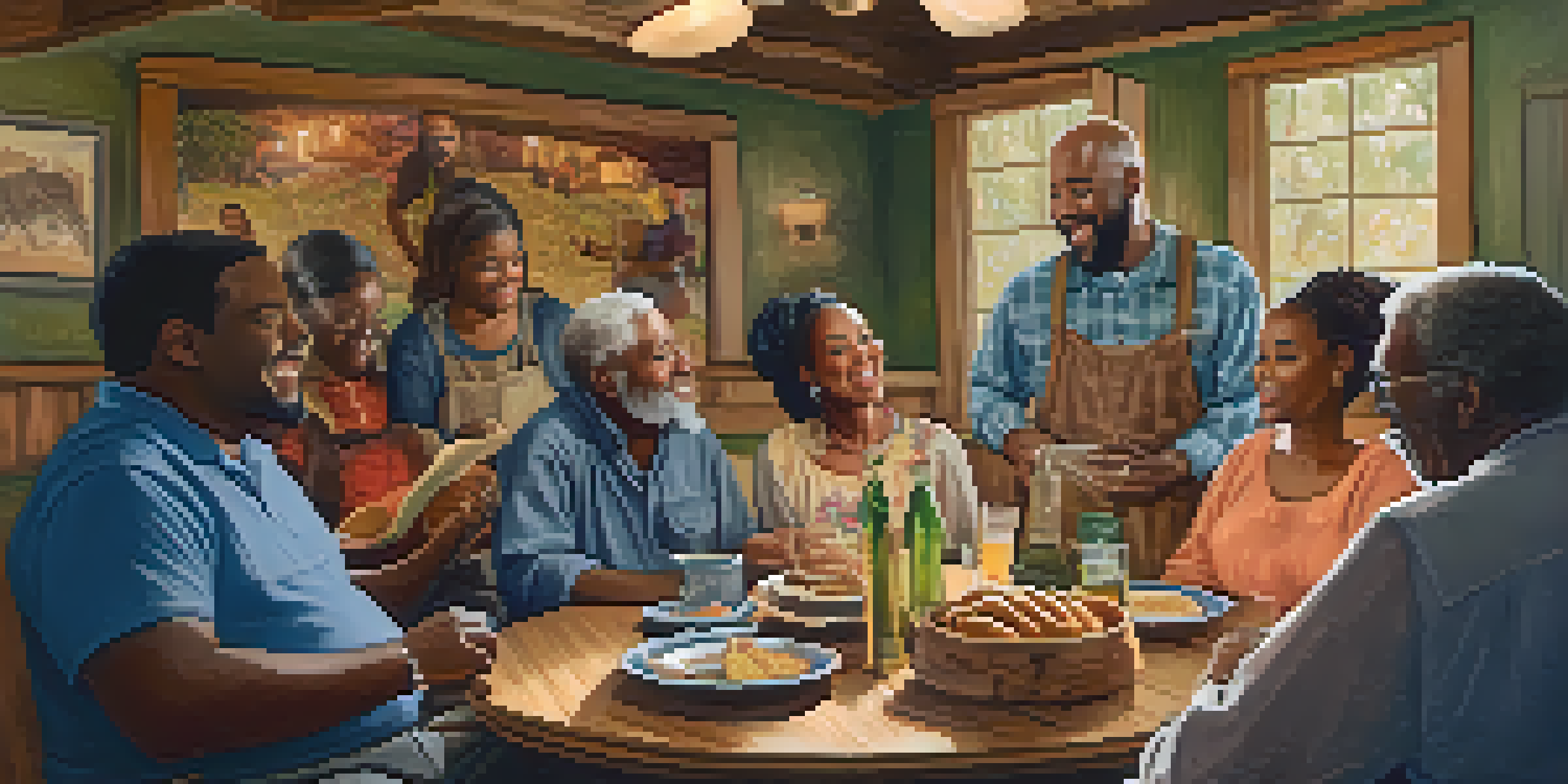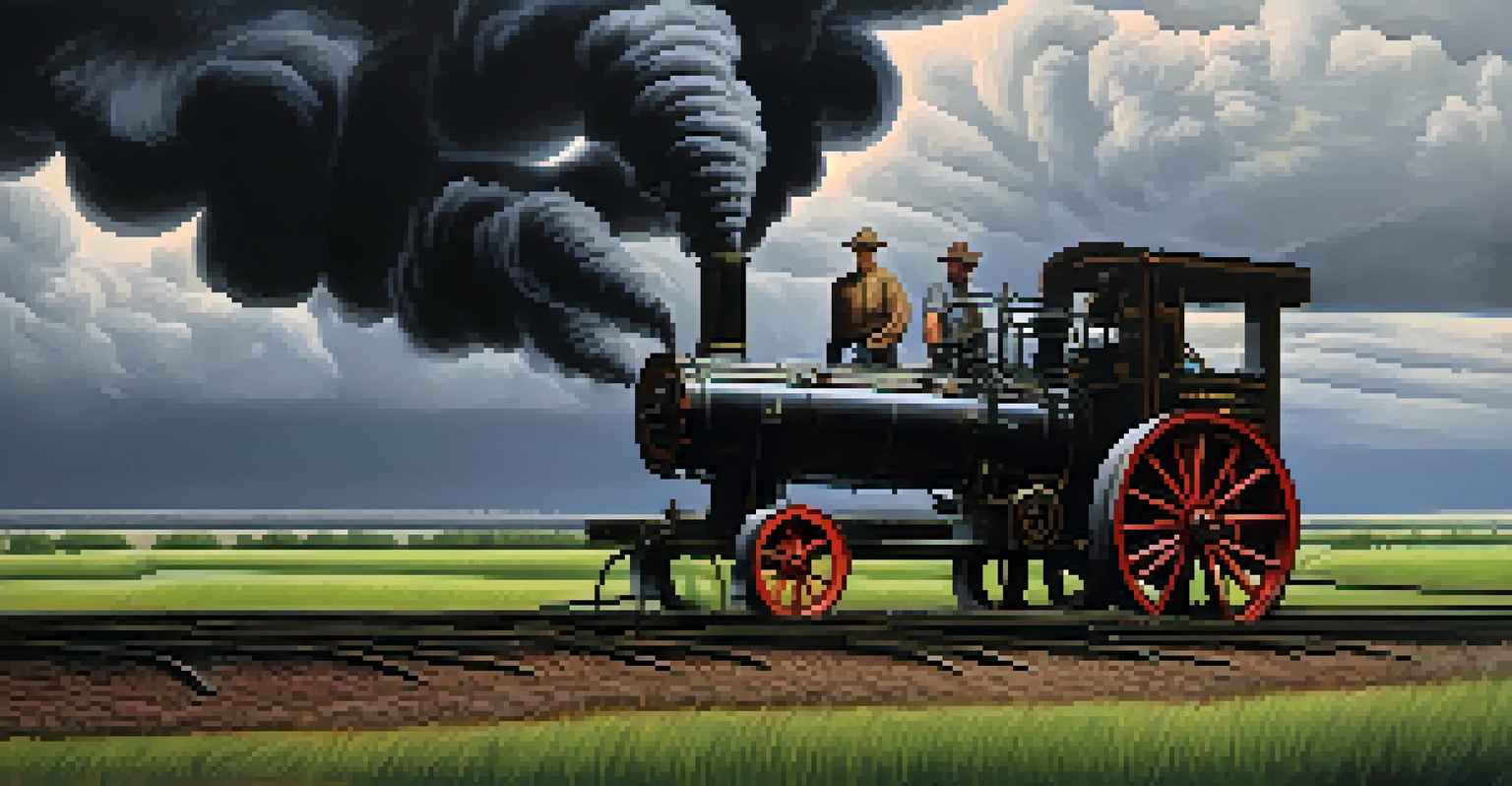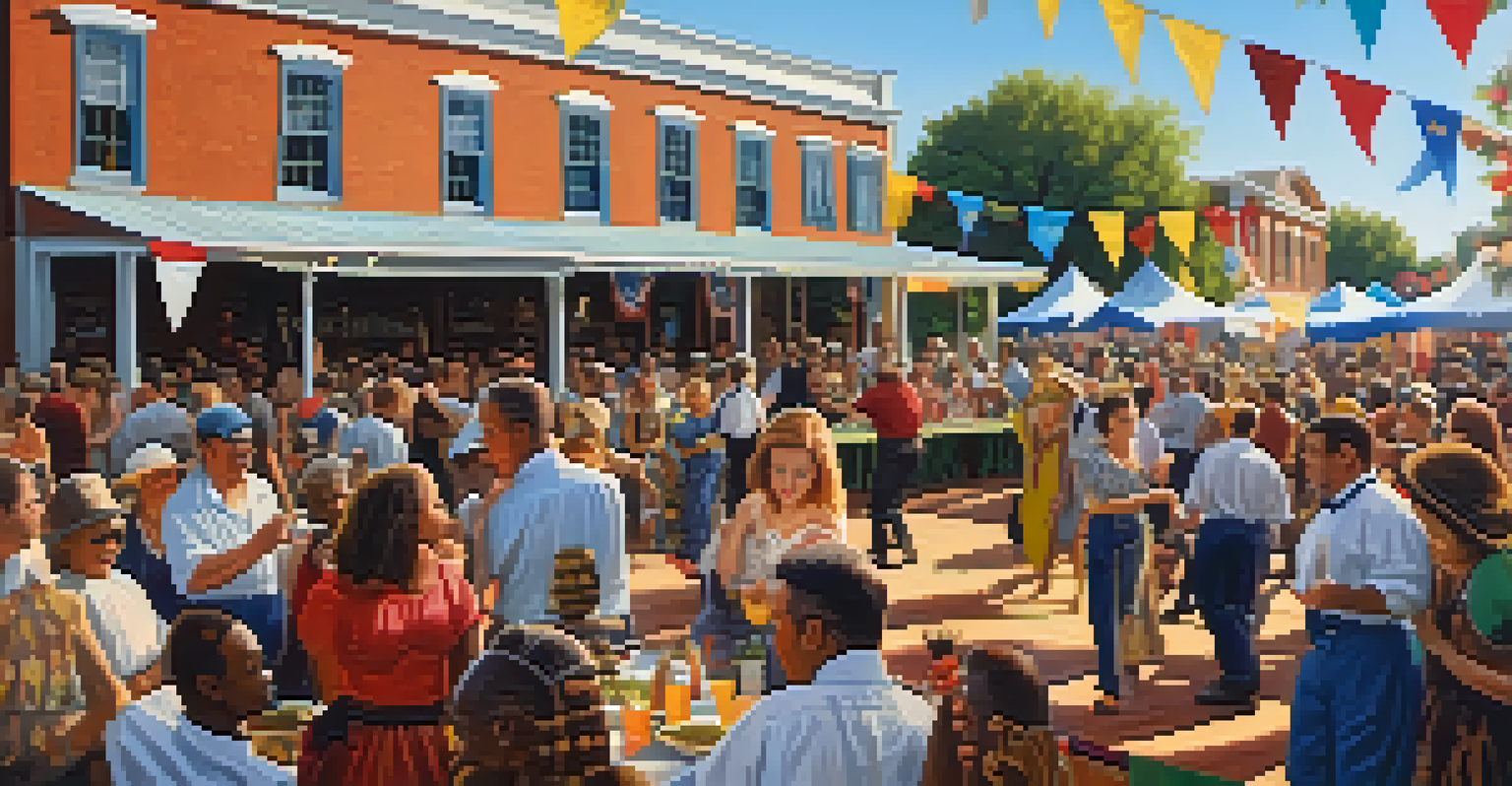Southern Folklore: Legends Shaping Cultural Heritage

What is Southern Folklore and Its Significance?
Southern folklore encompasses the rich tapestry of stories, beliefs, and customs that have been passed down through generations in the South. These narratives, often rooted in oral tradition, provide insight into the values, struggles, and joys of the Southern people. The significance of folklore lies not only in entertainment but also in its role as a cultural touchstone that fosters community identity and continuity.
Folklore is the art of the people, a living tradition that reflects the values, beliefs, and experiences of a community.
From ghost stories that chill the spine to tales of heroic figures, Southern folklore serves as a mirror reflecting the collective experiences of its people. Each story carries lessons, warnings, or moral guidance, shaping the identity of those who share and listen to them. This cultural heritage nurtures a sense of belonging, especially in a region characterized by diverse backgrounds and histories.
As we dive into the world of Southern folklore, we uncover how these legends influence everything from music and art to festivals and rituals. Understanding these stories helps us appreciate the intricate layers of Southern culture, making it a vital aspect of American heritage.
The Role of Oral Tradition in Southern Folklore
Oral tradition is the lifeblood of Southern folklore, allowing stories to evolve and adapt over time. Unlike written records, oral storytelling thrives on personal expression and community interaction, making each retelling a unique experience. This method of passing down tales fosters a deep connection between the storyteller and the audience, often blurring the lines between fact and fiction.

In many Southern communities, storytelling gatherings are cherished events where individuals share their heritage through anecdotes and legends. These gatherings not only preserve the stories but also create a sense of camaraderie and shared identity among participants. The act of storytelling itself becomes a ritual, reinforcing cultural bonds and enriching the community's collective memory.
Southern Folklore's Cultural Significance
Southern folklore serves as a cultural touchstone, reflecting the values and identity of its communities through shared stories and traditions.
Through oral tradition, Southern folklore captures the essence of the region's history, including the struggles of slavery, migration, and resilience. Each story serves as a reminder of the past while simultaneously providing wisdom for future generations, ensuring that the rich legacy of Southern culture continues to thrive.
Famous Southern Legends and Their Origins
Southern folklore is brimming with captivating legends, each with its own unique origin story. One of the most famous is the tale of John Henry, a legendary steel driver who raced against a steam drill. This story symbolizes the struggle against industrialization and the perseverance of the working class, resonating deeply with Southern values of hard work and determination.
Stories are the currency of human relationships, and folklore is a treasure trove of our collective memories.
Another notable legend is that of the Bell Witch, a haunting story from Tennessee that has intrigued and terrified locals for centuries. The Bell Witch is said to be a vengeful spirit that tormented a family in the 19th century, showcasing the intersection of fear and folklore in Southern culture. Such legends often serve as cautionary tales or moral lessons, providing context to the socio-cultural landscape of the time.
These legends not only entertain but also offer a glimpse into the historical realities of the South, including issues of race, class, and gender. By exploring these stories, we can better understand the complexities of Southern identity and the ways in which folklore continues to shape cultural narratives.
Folklore and Its Influence on Southern Music
The influence of Southern folklore is profoundly evident in the region's music, from blues and country to folk and gospel. Many songs are woven with narratives that reflect the struggles, joys, and everyday life of the Southern experience. This musical storytelling tradition allows for the preservation of cultural heritage while also giving voice to personal and communal stories.
For instance, the blues genre often draws upon themes of hardship and resilience, echoing the struggles depicted in folklore. Artists like B.B. King and Muddy Waters have transformed these tales into powerful anthems that resonate with listeners, reinforcing the connection between folklore and music. Through melodies and lyrics, these artists keep the spirit of Southern folklore alive.
Oral Tradition's Role in Storytelling
Oral tradition is essential to Southern folklore, allowing stories to evolve and fostering deep connections within communities through shared narratives.
Moreover, Southern music festivals frequently celebrate these folkloric traditions, inviting musicians to share their stories and songs. These gatherings not only entertain but also serve as cultural showcases, promoting a deeper understanding of Southern heritage and fostering a sense of pride among attendees.
The Intersection of Folklore and Southern Cuisine
Southern cuisine is another facet of cultural heritage deeply intertwined with folklore. Traditional recipes often carry stories of family gatherings, celebrations, and ancestral roots, making food a vital part of storytelling in the South. Just as a well-told tale can evoke emotion, a beloved dish can transport individuals back to cherished memories and experiences.
For instance, dishes like gumbo and cornbread are not just meals; they are steeped in history and tradition. Each recipe often has its own legend, whether it’s about a grandmother's secret ingredient or a family gathering where the dish was first served. These culinary stories contribute to a rich narrative that celebrates community and continuity.
Additionally, many Southern festivals highlight the connection between folklore and food, showcasing traditional dishes alongside storytelling sessions. This fusion of food and folklore creates a multi-sensory experience, allowing participants to savor not only the tastes but also the tales that shape Southern culture.
Modern Interpretations of Southern Folklore
As society evolves, so does the interpretation of Southern folklore. Contemporary authors, artists, and filmmakers are reimagining traditional stories, blending them with modern themes and issues. This revitalization breathes new life into folklore, ensuring its relevance in today's cultural discourse while also reaching younger audiences.
For example, novels like Jesmyn Ward's 'Sing, Unburied, Sing' draw upon elements of Southern folklore to explore themes of family, race, and resilience. Such works highlight how folklore can serve as a vehicle for discussing contemporary social issues, bridging the past with the present. This creative reinterpretation keeps the essence of the stories alive while addressing current realities.
Influence on Music and Cuisine
Folklore profoundly influences Southern music and cuisine, intertwining narratives with melodies and recipes that preserve cultural heritage.
Moreover, digital platforms have opened new avenues for storytelling, allowing folklore to flourish in innovative ways. Podcasts, social media, and online storytelling events are making Southern legends accessible to a global audience, fostering a renewed interest in the region's rich cultural heritage.
Preserving Southern Folklore for Future Generations
Preserving Southern folklore is crucial for maintaining cultural identity and heritage. Organizations, museums, and community groups are actively working to document and share these stories, ensuring they are not lost to time. Efforts such as oral history projects and folklore festivals help to celebrate and sustain the rich narrative traditions of the South.
Education also plays a vital role in preservation. By incorporating folklore into school curricula, educators can instill a sense of pride and understanding in young people about their cultural heritage. Engaging students with storytelling, music, and culinary traditions fosters a deeper appreciation for the uniqueness of Southern folklore.

As we strive to keep these stories alive, it's essential to encourage participation from all members of the community. By inviting diverse voices to share their experiences and interpretations, we enrich the tapestry of Southern folklore, ensuring that it continues to evolve and resonate with future generations.